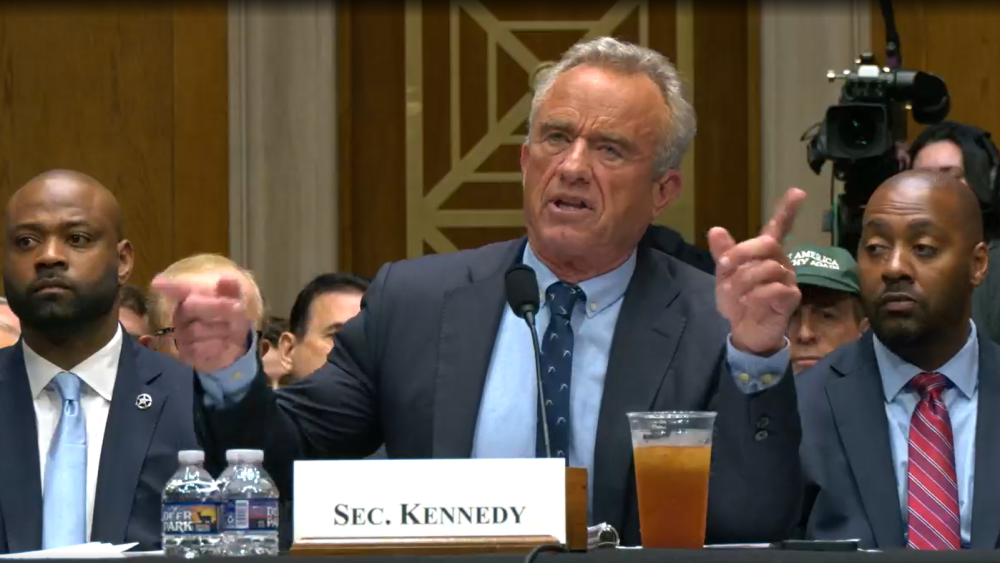Robert F. Kennedy Jr.’s removal of all remaining members of the CDC’s Advisory Committee on Immunization Practices raises questions about the upcoming meeting later this month. Analysts fear the committee could be more sympathetic to the HHS Secretary’s anti-vax viewpoints.
On Monday, after the markets closed, Health and Human Services Secretary Robert F. Kennedy Jr. gave all 17 remaining members of the CDC’s Advisory Committee on Immunization Practices their walking papers. Analysts didn’t hesitate to ring the warning bell.
“While the makeup of a reconstituted ACIP is TBD, new members will likely be sympathetic to at least some of RFK’s beliefs regarding alleged dangers of vaccines (the disproven link to autism, for example),” Leerink Partners wrote in a note to investors Monday evening.
William Blair echoed this sentiment. “We view the complete line change at the ACIP as a potential hindrance to the vaccine development space, as we think the new Committee members may have more restrictive recommendations on vaccine uptake and use,” the analysts wrote in a Tuesday morning note. The group did express some relief that the committee itself still exists. “[W]ith ACIP remaining in place, this outcome is less disruptive than it could have been, with disbandment one of the fears following RFK Jr’s appointment.”
In Kennedy’s op-ed explaining the move, published Monday in The Wall Street Journal, he wrote that the ACIP “has never recommended against a vaccine—even those later withdrawn for safety reasons.”
This statement, Leerink wrote, “suggests that ACIP could be more critical of vaccines, which could negatively impact approved vaccine recommendations and increase the burden of evidence and costs for future vaccine development.”
Sen. Bill Cassidy (R-LA) made no secret of his qualms regarding Kennedy during the secretary’s Senate confirmation hearings. Before ultimately voting in his favor, Cassidy said he received a commitment from Kennedy to “maintain” the vaccine committee “without changes,” according to reporting by The Washington Post. On Monday, Cassidy didn’t say that Kennedy had broken that promise, telling reporters that Kennedy pledged to not change the process rather than the committee itself.
Still, Cassidy acknowledged the concern circulating in the aftermath of the ACIP news. “Of course, now the fear is that the ACIP will be filled up with people who know nothing about vaccines except suspicion,” he wrote on X on Monday. “I’ve just spoken with Secretary Kennedy, and I’ll continue to talk with him to ensure this is not the case.”
As for near-term impacts on biopharma, Leerink noted that the ACIP overhaul “could delay less controversial recommendations,” such as for Merck’s RSV antibody clesrovimab, which was approved by the FDA on Monday. William Blair saw the largest potential impact for Moderna’s RSV vaccine mResvia, which won the FDA’s nod on May 31.
At the last ACIP meeting in April, advisors expanded the age group recommended to receive an RSV vaccine to include high-risk adults 50–59 years old, down from a previous recommendation of over 60. William Blair analysts speculated that mResvia, if approved, could be added to the updated age group recommendation. But the ACIP overhaul could change that, the firm said.
“We had previously viewed mResvia’s unique safety profile, with no incidence of Guillain-Barré Syndrome (GBS) observed to date, as justification for adding a re-dosing recommendation, which would need ACIP support,” the analysts wrote. “Given today’s restructuring, we see such a recommendation as less likely for the RSV vaccine class.”
The next meeting of the ACIP is set for June 25–27 and will “proceed as scheduled,” according to William Blair. The analysts did note, however, that “no guidance was given regarding the expected composition of the ACIP for that meeting.”
In addition to possibly discussing mResvia’s recommended use, the committee was expected to vote on COVID-19 vaccine recommendations, with the ACIP in April leaning toward shifting from a universal to a risk-based strategy. However, Kennedy sidestepped normal protocol in that regard, announcing late last month via a video posted to X that the CDC would no longer recommend COVID-19 vaccination for healthy children or pregnant women.
Another potential topic of discussion at the upcoming ACIP meeting, as noted by Leerink Partners in April, is HPV vaccines, which the group said would be “of high import” for Merck’s U.S. Gardasil revenue. The analysts anticipated that the ACIP would vote on reduced-dose schedules as well as possible new language for the pediatric HPV vaccine recommendation.






